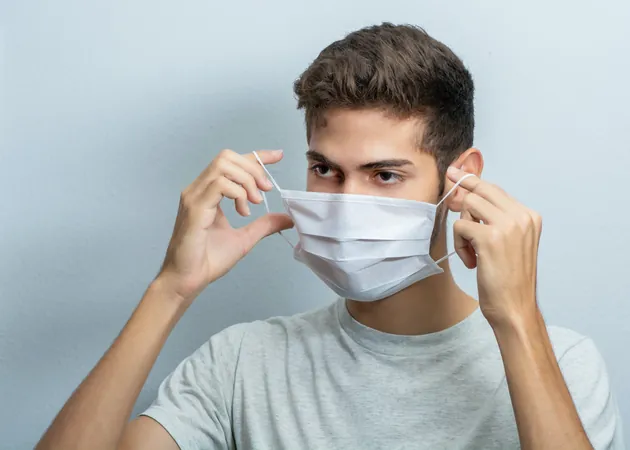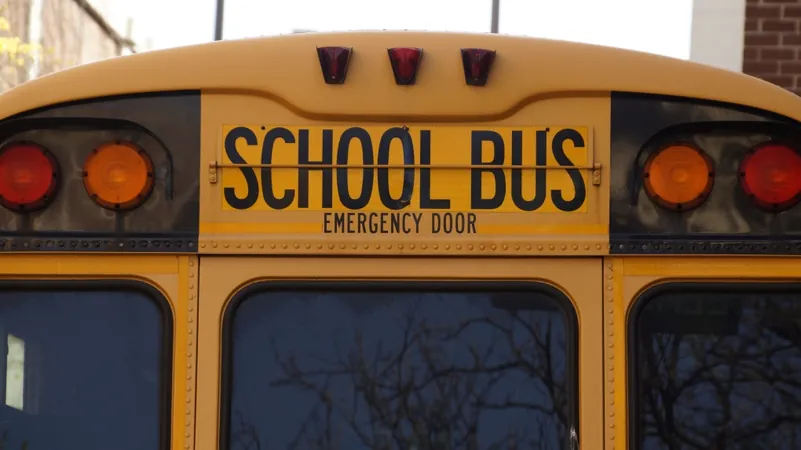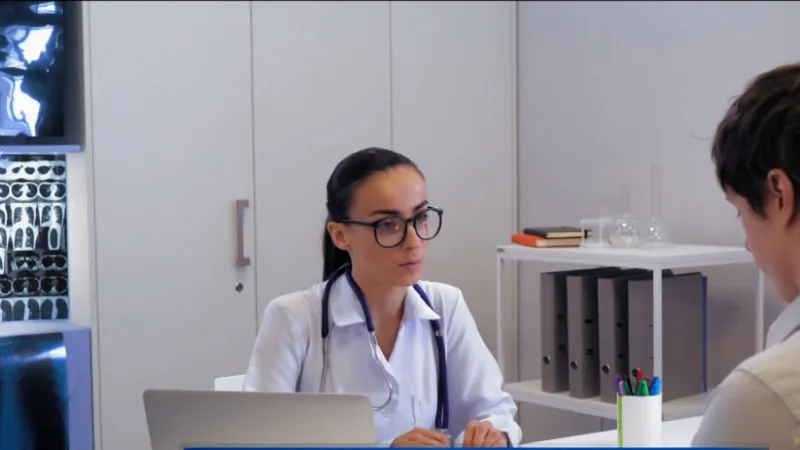
Prepare for a 'Quad-Demic': How to Shield Yourself This Winter in the UK!
2024-12-09
Author: Liam
As winter approaches, the UK is bracing for an unprecedented public health challenge—a potentially dangerous 'quad-demic.' The UK Health and Security Agency (UKHSA) reports a concerning surge in four common seasonal respiratory viruses: COVID-19, influenza, respiratory syncytial virus (RSV), and norovirus. Alarmingly, recent data reveals a staggering 352% spike in flu-related hospitalizations compared to last December.
But why are we facing such a confluence of epidemics this winter?
Respiratory viruses tend to thrive in winter months for various reasons. The recent drop in temperatures means more people are congregating indoors, often in poorly ventilated spaces, enabling these viruses to spread more easily. Cold, dry air not only enhances the survival of viruses but also contributes to lower immunity due to reduced sunlight exposure and, consequently, diminished vitamin D levels.
Moreover, the flu virus continues to evolve, presenting new strains that our immune systems may not recognize. The legacy of COVID-19 has left many with weakened viral immunity due to extended periods of social distancing and reduced exposure to typical winter viruses.
Adding to the worry, norovirus is notoriously infectious, which further complicates the health landscape as cases rise during the winter season.
What Can You Do to Protect Yourself?
Getting vaccinated stands out as one of the most effective strategies to guard against these seasonal threats. The NHS is urging eligible individuals to secure their vaccinations as COVID-19 cases, flu outbreaks, and hospital admissions increase.
Eligible groups for free flu and COVID-19 vaccinations include adults over 65, care home residents, and those aged six months to 64 with specific underlying health conditions. If you're not in these categories, vaccines can be purchased at local pharmacies.
Notably, a recent RSV vaccination program has been launched, benefiting those most vulnerable, such as older adults aged 75 to 79 and pregnant women. However, for those outside the eligibility criteria, a single dose of the RSV vaccine can be purchased for around £245 at pharmacies like Boots.
Currently, there are no available vaccines for norovirus, although research is ongoing. The best defenses against norovirus include practicing good hand hygiene, covering your mouth and nose while coughing or sneezing, proper disposal of tissues, and ensuring adequate ventilation in indoor spaces.
Symptom Management Strategies
Children aged five to 14 have emerged as a particularly vulnerable demographic, with a nearly 12% increase in flu cases reported recently. While vaccination remains the best preventive measure, those who do fall ill can manage symptoms effectively at home with rest, hydration, and over-the-counter medications.
The RSV vaccine is crucial in reducing severe cases that require hospitalization. Importantly, it’s advisable to get the RSV vaccine on a different day from the flu or COVID vaccines to maximize effectiveness.
Should you contract RSV or norovirus, symptom management at home is typically sufficient. Norovirus symptoms tend to resolve within a couple of days, while those suffering from RSV can expect improved health after five to ten days. If symptoms worsen, local pharmacies can provide guidance on non-prescription treatments and refer patients needing further medical attention to GPs.
What Lies Ahead?
The NHS is already under severe strain, with seasonal demands escalating, and the rise in viral infections is expected to compound the pressures faced by general practitioners. Vulnerable populations are particularly at risk, further burdening an already overtaxed health service.
Moreover, with reports of mpox and avian flu cases surfacing, there looms a possibility of an additional fifth and sixth epidemic, amplifying the urgency of monitoring and preventive measures.
The prospect of multiple epidemics converging poses a serious risk. Therefore, getting vaccinated—whenever possible—and adhering to precautionary health measures is vital for all individuals. As we navigate this challenging winter, prioritizing health and safety not just for ourselves but also for our communities is paramount. Don’t wait until it's too late—protect yourself and your loved ones now!









 Brasil (PT)
Brasil (PT)
 Canada (EN)
Canada (EN)
 Chile (ES)
Chile (ES)
 España (ES)
España (ES)
 France (FR)
France (FR)
 Hong Kong (EN)
Hong Kong (EN)
 Italia (IT)
Italia (IT)
 日本 (JA)
日本 (JA)
 Magyarország (HU)
Magyarország (HU)
 Norge (NO)
Norge (NO)
 Polska (PL)
Polska (PL)
 Schweiz (DE)
Schweiz (DE)
 Singapore (EN)
Singapore (EN)
 Sverige (SV)
Sverige (SV)
 Suomi (FI)
Suomi (FI)
 Türkiye (TR)
Türkiye (TR)